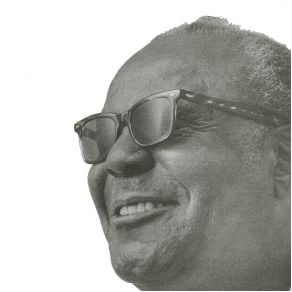Blind Arvella Gray
Wikimp3 information about the music of Blind Arvella Gray. On our website we have 1 albums and 1 collections of artist Blind Arvella Gray. You can find useful information and download songs of this artist. We also know that Blind Arvella Gray represents Blues genres.
Biography
[Edit]Chicago bluesman Blind Arvella Gray was born Walter Dixon in Somerville, TX, on January 28, 1906. A world-class raconteur, he vividly embellished the details of his life and never told a particular story the same way twice, meaning the exact circumstance of his formative years are impossible to document with any certainty. But by most accounts Gray began as a stick-up man, reportedly driving a getaway car for Detroit's infamous Purple Gang; during a botched bank robbery attempt — possibly in Peoria, IL — he was shot, losing his sight and two of the fingers on his left hand in the process. (During some retellings, the shooter was instead a jealous husband.) Eventually Gray landed in Chicago and picked up the guitar, inspired by the blues and gospel songs he learned in the cotton fields and chain gangs of the rural South. He acquired a National steel guitar but, bereft of two fingers on his fret hand, could play only slide. Sometime around 1946 Gray became a fixture of the legendary Maxwell Street open-air market, standing out from rival bluesmen by virtue of a repertoire comprised of little-known field hollers and work songs; he sometimes performed alongside his sister, who typically appeared under the name Granny Clara Jenkinsbey.
Gray also traveled extensively outside of Chicago, regularly playing at the annual Kentucky Derby and making frequent trips to the St. Louis area, where he performed up and down the Mississippi River. The riverboats were another fertile source for Gray's repertoire. There he learned new lyrics to his signature tune, the traditional "John Henry," that "were not in the Library of Congress until he put them there," according to Delmark Records founder Bob Koester. Other staples of the Gray songbook included the country traditional "More Pretty Girls Than One" and the gospel standard "Take Your Burden to the Lord and Leave It There." According to legend, he was even the source of Bob Dylan's 1961 recording "He Was a Friend of Mine." Gray himself first appeared on record on the 1960 compilation Live from Maxwell Street, in 1965 self-releasing three rare singles: "Freedom Riders," "You Are My Dear," and "John Henry." He also appeared in the 1964 documentary And This Is Free. In 1972, a teenaged suburbanite and budding blues devotee named Cary Baker fell under Gray's sway and convinced Dave Wylie, owner of the tiny Wilmette-based label Birch Records, to finance an LP. The Singing Drifter, Gray's lone album, appeared in 1973 in an edition of just 1,000 that quickly sold out but was not repressed.
Despite reaching blues fans in Europe and Japan — some of whom traveled to Chicago just to meet and photograph Gray during his regular Maxwell Street gigs — The Singing Drifter did little to raise his visibility at home. He remained a Maxwell Street fixture long after most of his peers and rivals abandoned the bazaar, busking there each and every Sunday morning. By 1980 it seemed Gray's career was on the upturn: he and Baker discussed cutting a second LP, and he was in talks with organizers of the University of Chicago Folk Festival to appear in a showcase spotlighting performers who played the inaugural festival 20 years earlier. But before either project could reach fruition, Gray died on September 7, 1980; given his slim body of recorded music and limited fame outside the Midwest, over the years to follow he essentially slipped through the cracks of Chicago's rich blues history. But in 2004 Baker — now a successful music industry PR exec who operated his own firm, Conqueroo — tracked down Wylie to inquire about reissuing The Singing Drifter on his fledgling Conjuroo label; an expanded CD edition of the album appeared the following summer, marking its first ever wide release.
Collections
Title: Blues from Maxwell Street
Genre: Blues

